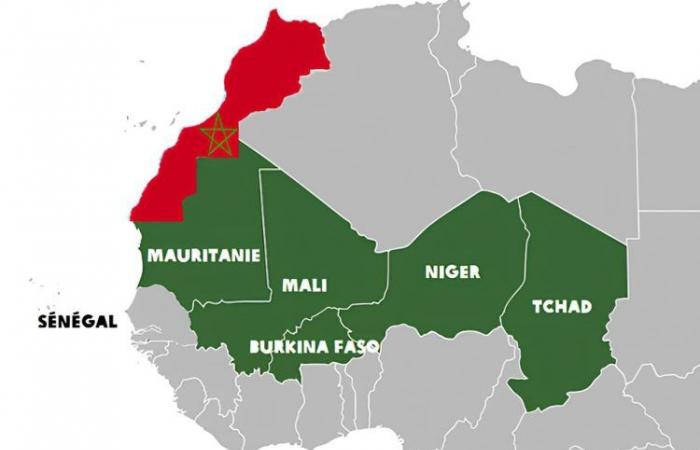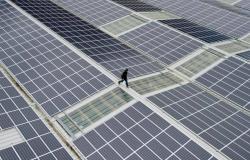Many experts in economic diplomacy or even geoeconomics believe that Europe has reached its limits, resulting in an “unraveling of Europe”, as Francis Gutmann, a French diplomat, puts it. In America too, the numerous joint work projects have not produced any real results. Mercosur, Unasur, even the Alba policy, founded in 2004 at the initiative of Cuba… All these projects were confronted with various problems which slowed down their momentum. What Moroccan modus operandi in a very unstable Sahel region?
With its 3,000 kilometer Atlantic coastline and its role as a crossroads between Africa, Europe and the Americas, Morocco is today positioned as a key player in structuring regional cooperation in the Atlantic space. However, the recent history of major economic and diplomatic alliances warns of the pitfalls of these projects.
Read also | Why the Atlantic Initiative has every chance of succeeding
In Europe, the European Union is facing increasing political fragmentation and an economy that is struggling to grow (0.7% expected in 2024 according to the ECB). On the other side of the Atlantic, initiatives like Mercosur or Unasur have shown their limits, hampered by internal differences and a lack of shared vision. Even more ideological blocs, like Alba founded by Cuba in 2004, have failed to establish themselves sustainably on the international scene.
In this context, Morocco’s initiative faces a major challenge: how to build an effective cooperation strategy without repeating the mistakes of the major global alliances? This challenge is amplified by the chronic instability of the Sahel region, where security risks, internal conflicts and endemic poverty hamper any regional dynamic. In 2024, the Sahel had more than 36 million displaced people and an economic growth rate limited to 3%, according to the World Bank.
Read also | Atlantic Initiative: Sahel countries reaffirm their alliance with Morocco
If Morocco aspires to play a leading role in this region, it will have to reconcile its leadership ambition with the complexity of a geopolitical environment marked by multidimensional tensions. Furthermore, it must be admitted that the Kingdom has strategic assets to meet this challenge. With its massive investments in port infrastructure (such as Tanger Med, the first port in Africa) and proactive diplomacy on the continent, Morocco has the capacity to propose a model of Atlantic cooperation that is both pragmatic and inclusive. But to succeed, it will have to answer a crucial question: what institutional, economic and diplomatic innovations would make it possible to avoid the pitfalls of rigid groups while promoting flexible integration adapted to the specificities of the region?
Is there a need for an economic doctrine?
For decades, on the continent, the terrain of regional integration has been invested with a plurality of projects: the East African Community (EAC), the Economic Community of African States West (ECOWAS), the Southern African Development Community (SADC), or the Common Market for Eastern and Southern Africa (Comesa). Just as in South America, the issue of stability has made any development project difficult to achieve. The Somali and Libyan chaos, as well as terrorist groups like AQIM or Boko Haram, are disrupting all surrounding regions.
Starting from this prism of challenge, what modus operandi of resilience for the Sahel initiative? “The African countries of the Atlantic initiative, led by Morocco, must work to develop a common African economic doctrine whose aim would be to build a new African offer,” warns economist Driss Aissaoui. And to continue: “The Atlantic initiative project is the future. More than twenty African countries will use their knowledge and know-how to transmit value and become vectors of wealth and development. »
Read also | Where is the African-Atlantic Gas Pipeline? Amina Benkhadra says it all [Vidéo]
For his part, expert Jamal Machrouh, Senior at the Policy Center, declares: “The history of the European integration process presents some very striking lessons. The founding fathers of European integration began the construction process by concretizing cooperation in two key areas, namely coal and steel, by establishing the European Coal and Steel Community . Cooperation in these two sectors quickly constituted a kind of locomotive which pulled European coordination and integration into almost all sectors. »
And added: “In this sense, the Atlantic Africa process deserves to be based on the realization of cooperation and integration in a limited number of areas, but with well-established timetables and objectives. One of these structuring projects is the Nigeria-Morocco gas pipeline, which aims to relay gas production areas from the Gulf of Guinea to Europe via all the West African countries bordering the Atlantic. »
Experts are reassured about the future…
For Michel Vialatte, international consultant and public policy expert: “Morocco’s Atlantic strategy is distinguished by its dimension, appropriate to the challenges of a Sahelian sub-region that its physical geography and post-colonial territorial divisions have distanced from the access to the Atlantic coast of the African continent. There is real diplomatic genius in having conceived an ambition to develop the Saharan Atlantic coast of Morocco with the objective of designing infrastructures of all kinds: ports with the ambitious Dakhla Atlantique, roads, maritime (with Dakar in particular ) and, tomorrow, rail (because it will be necessary to connect the port of Dakhla to the regions of Souss-Massa and Marrakech-Safi), accessible to countries hitherto deprived of access for the export of their productions. »
Read also | Leila Benali: Morocco, the only energy corridor linking Europe, Africa and the Atlantic
“The geographical positioning of Mauritania, an obligatory passage towards the southern provinces of Morocco and its coastline, but also the well-understood interest of the two countries (Morocco and Mauritania) in thinking together the modus operandi of the organization of interstate exchanges of the sub-region, will quickly and mechanically lead to a significant strengthening of Moroccan-Mauritanian bilateral cooperation and, thus, give life, on the south-western flank of the Maghreb, to a first outline of a Union of Arab Maghreb which proves impossible to build on its northeastern flank. »
As for the president of IMRI, Jawad Kerdoudi, according to him, in this project, feasibility prevails over complexity. “Morocco has a problem which is that of the recognition of the Moroccanness of its Sahara. Between States, there is no feeling, there are only interests. Also, Morocco has launched two major projects for Africa: access for landlocked Sahel countries to the Atlantic Ocean via the port of Dakhla. This project was of great interest to Mali, Burkina Faso, Niger and Chad. In addition, this project pushed the Mauritanian president to get closer to Morocco by accompanying King Mohammed VI to the United Arab Emirates to seek financing. The other project, the Nigeria-Morocco gas pipeline, will cross 13 countries which will receive a financial contribution in the form of money or in kind. These two projects mark the dynamism of Moroccan diplomacy and increase Morocco’s prestige on the international scene. »
“Also, I am in favor of these major projects which are certainly difficult to implement but which are worth it,” concludes Jawad Kerdoudi, president of IMRI.






